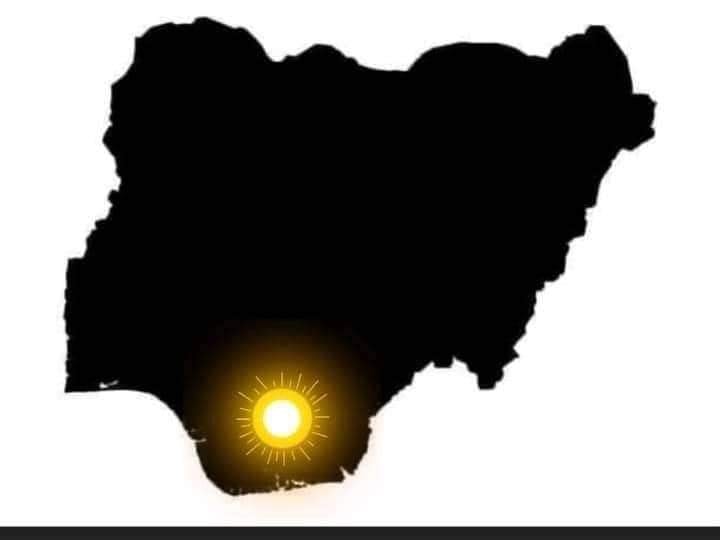
By Kehinde Nubi
To project into the future, it might be necessary to pick one’s coordinates from the past. If we are looking at 2040, twenty years into the future, then we should cast our minds twenty years back. We might as well start from the year 1999, the year of return to civilian rule after sixteen years of military rule.
There was much hope, especially in light of the fact that the man expected to chart the way forward was Olusegun Obasanjo, an ex-Military Head of State. There was so much promise on account of the belief that Obasanjo had the right blend of qualities to pilot the affairs of State, four presidents later, including the incumbent, the degeneration and retrogression are a sad commentary on the betrayal of the hopes and aspirations of some 200 million people.
Today, everything that can go wrong with the country has going wrong. Infrastructure is decaying, love and trust have flown out the window, the economy is in shambles, and blood flows like water. Centrifugal forces are threatening to tear the country apart, and terrorism and insurgency are the order of the day. What is there to expect in 2040? For the incurable optimist, the usual answer is, “it is well”. From whence is the inordinate optimism?
Anyone hoping that Nigeria will suddenly become an elDorado is a joker! A third-grade analyst knows that all is not well. In the next twenty years, things are evidently going to be much more terrible than they are today. The first thing to look at is the economy, which is not in the best hands now. Whether a country will make progress depends on a vibrant economy. The pervasive corruption in the system especially by the ruling class has set a clear negative pattern, and obviously, it is not going to get better.
The fact that people have seemingly been getting away with looting the commonwealth will make it more attractive to be looted, and therefore worse. The political will to deal with corruption will have simply vanished completely by the year 2040. All that would remain of Nigeria, as far as corruption is concerned, is the racketeering that the government would have completely become.
By 2040, the educational sector would have become a disgrace to decency. Right now, it is an open secret that some people do not believe in following due process, to the extent that they get involved in examination malpractice, and encourage it in others. Parents are known to arrange ‘mercenaries’ to sit for exams for their children or pay people to supply answers at the examination hall. They are not deterred by the system set up to prevent these things and have become adept at beating the system. Of course, that is one sure way of destroying a country.
Security of lives and property, a joke right now, would have become a nightmare. Clearly, if present trajectories are maintained, the Boko Haram would be operating brazenly from all parts of the North, and bandits and kidnappers will be jostling to outdo themselves. Unfortunately, the peoples of the Northeast and Northwest would have grown more comfortable with terror, and will not see what is going on as so terrible again. Even right now, it is difficult to know what exactly these people want. As we have read in the news, beleaguered communities, weary of the treatment being meted out to them, are already signing pacts and agreements with the Boko Haram, in exchange for peace.
By 2040, the Federal Government of Nigeria will most likely have signed a deal with Boko Haram. What I am saying here is that the end of the war on terror is not yet over. One could argue that a change of leadership might make things tougher for Boko Haram, but the idea of Islamic brotherhood, lying in the heart of the average Muslim in the North, whether leader or follower, will combine to hamper genuine efforts by the government of the day.
By 2040, the Nigerian State, if it has not broken up into its constituent nationalities, will be wracked by continuous violence from agitators for self-determination. These tendencies will be strongest in the East. The Indigenous Peoples of Biafra, which has already escalated its non-violent agitation to armed confrontation would have turned fully into a liberation movement. In fact, it is difficult not to see a fully independent country from there. The Nigerian State, in my opinion, has pushed the Igbo people of Eastern Nigeria beyond tolerance. It would make sense to expect that the Ijaw Nation will use the opportunity provided by the Igbo people to launch their own independent movement. They will succeed. Equally worthy of mention is the fact that the Yoruba Nation, which would ordinarily be unstoppable if it got its acts together, would ride the wave of rebellion in the East and the South-South to coast to relatively painless independence.
The Nigerian Armed Forces are going to suffer defeat because it would lack the capacity to maintain the territorial integrity of Nigeria. However, this would depend on the people of the Middle Belt refusing to be cannon fodder for the core North, and whether or not the ancient cleavages, that is divisions, in the North would have come into play.
Generally, crime and criminality will get worse. This is because the economic hardship caused by the mismanagement of the economy would have pushed people to the wall. Based on the scenarios painted above, it is easy to come to the conclusion that, as seemingly impossible as it seems to be, Nigeria would have unraveled by the year 2040. Peace will elude the whole area for a while, however, by the year 2050, relative peace will reign.
(c) Kehinde Nubi 2021




Comments (1)
Hayatu Ezrasays:
June 16, 2021 at 7:38 pmSimply factual…